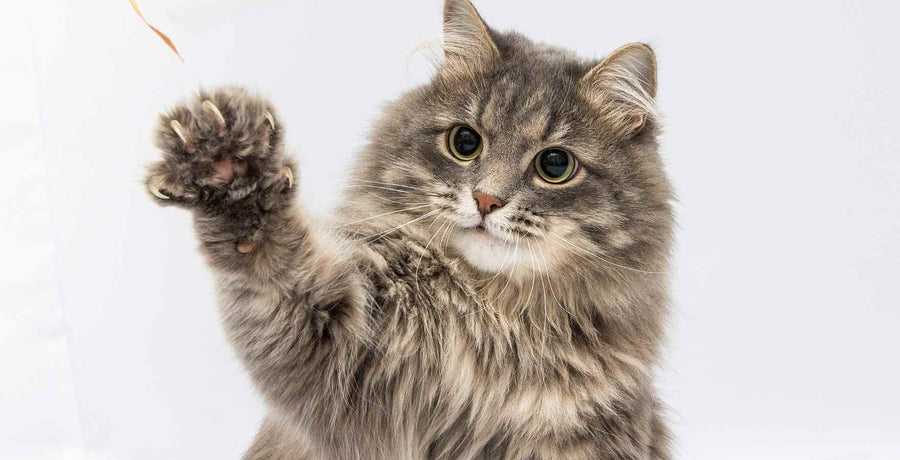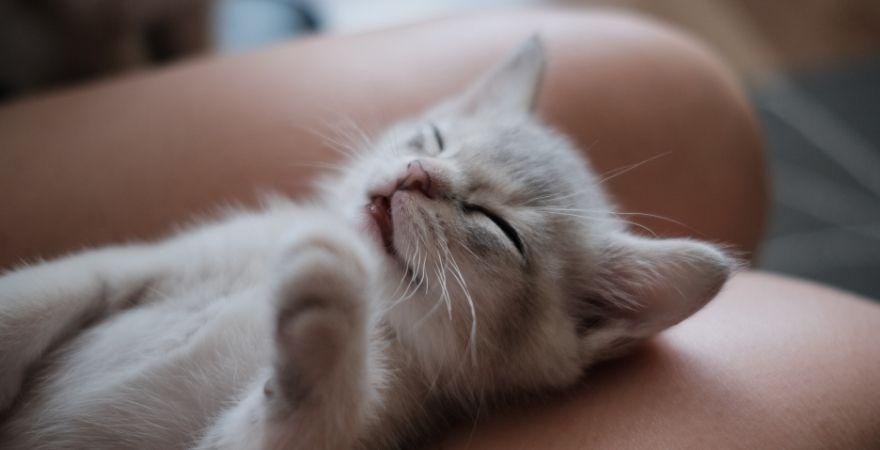When your furry little buddy’s kidneys and urinary tract are functioning as per factory specifications there will only be tiny amounts of protein in their urine.
When this filtration system begins to fail however, protein levels in the urine will increase. This can be the beginning of a chain of chronic medical problems that can seriously reduce your cat’s quality of life.
This increased concentration of blood protein is a condition known as proteinuria.
In this article, I’ll guide you through the basics of understanding proteinuria — why it’s important, its symptoms and the treatment options available.
WHY IT’S SIGNIFICANT

Proteinuria is a warning sign that your cat may have underlying health issues. High protein levels may indicate your cat’s delicate kidneys are struggling to effectively filter the bloodstream.
Research suggests that the survival rate of cats with chronic kidney disease is directly affected by the severity of proteinuria.
Any vet worth their stethoscope will be anxious to figure out what’s going on and why.
SYMPTOMS

So the big fur-ball of a question is, how can you know if your cat is dealing with proteinuria?
Here’s three tells to watch out for.
- Your fluff ball is rapidly losing weight. While this can be a sign of many problems, if you ever notice weight loss it’s always a good idea to make an appointment with the vet.
- You notice swelling, especially in the abdomen and the face.
- You’re noticing your cat drinking and urinating more frequently (the urine may also be foamy).
If you see any of these issues, talk to your friendly local veterinarian as soon as possible.
They’ll likely want to get your little guy in for an appointment to take a urine sample. Note that they will usually need to take the sample with a needle in order help reduce contamination as it passes out of the body.
TREATMENT

If your cat has proteinuria, early treatment is important. There’s increasing evidence that anti-proteinuria treatment can greatly slow the onset of chronic kidney disease, even halting it outright.
Medication
Medications for feline proteinuria work by reducing the flow of blood through the kidneys.
The most commonly prescribed medications are ACE inhibitors and Angiotensin II receptor blockers. These work by relaxing blood vessels and reducing the amount of water the kidney re-absorb.
Both these medications need to be taken gradually and you’ll need to watch closely for other side effects such as lethargy and lack of appetite.
Aspirin is another blood thinning drug occasionally used to treat feline CKD but it has fallen out of favor because it can be toxic to cats, who metabolize it very slowly.
Encouragingly, new drugs with potentially fewer side-effects are being tested with favorable results.
Diet
Another important step is to reduce the overall traffic of protein through the body with a slightly reduced protein diet.
You’re going to need to take care here though! Your cat absolutely needs protein in order to remain healthy, active and ready for mischief. It’s therefore advisable to gradually switch to a lower protein diet, making sure that the protein they do get is a high quality lean animal protein.
You may also wish to consider putting your cat on vet-approved omega 3 essential fatty acid supplements. While research on its efficacy with cats is still at an early stage, we do know they help humans with kidney issues.
Provided you follow the dose directions, it can’t hurt!
If you see the symptoms of proteinuria in cat urine, the best thing you can do is to talk to your vet.
While medications are part of the solution, getting your cat onto a slightly reduced but high quality protein diet as early as possible is going to improve their quality of life and greatly improve their chances of avoiding chronic kidney disease.




10 comments
I have a 13 year old cat with thyroid problems and now must give her Methimazole twice a day. How can this thyroid dysfunction be prevented as I have two other cats.
viagra side effects in men[/url]
cialis plux dapoxetine online ordering[/url]